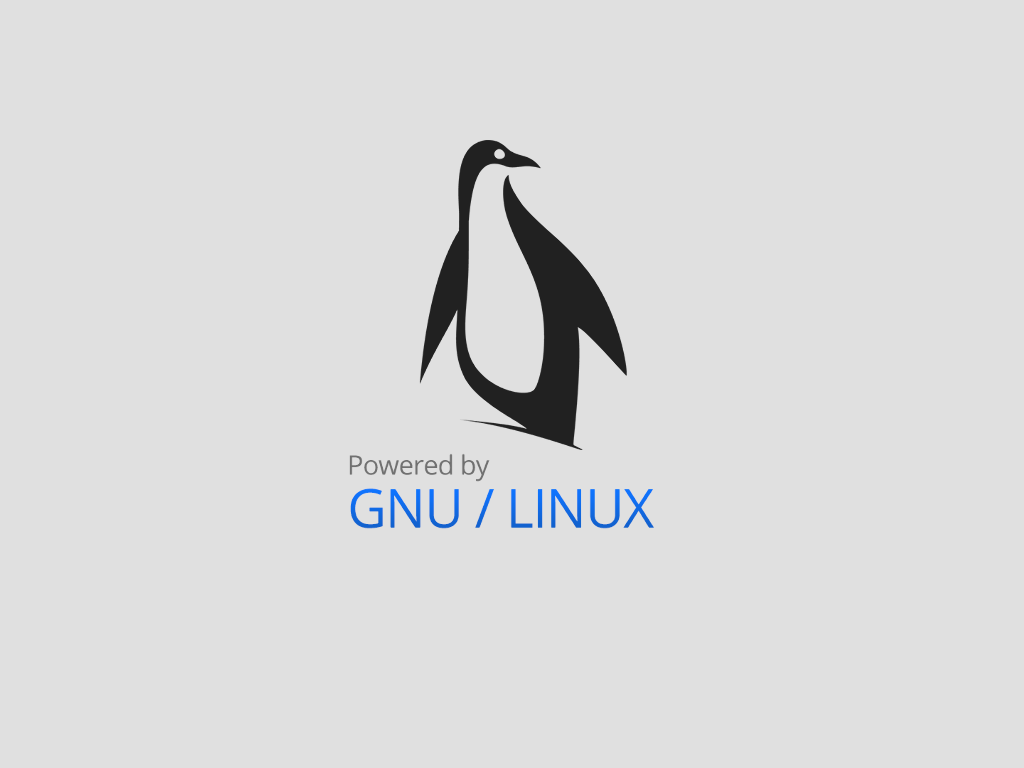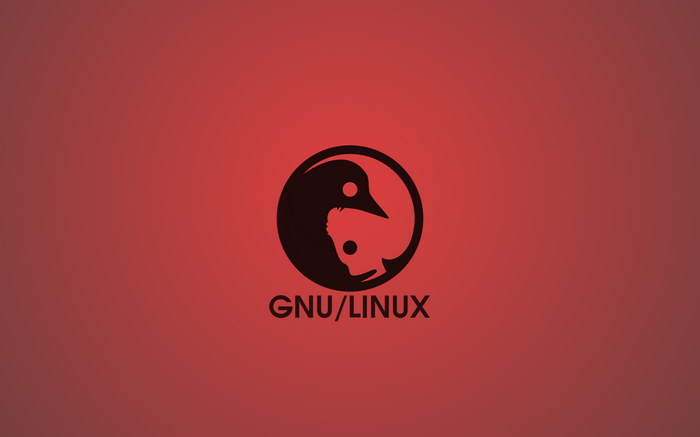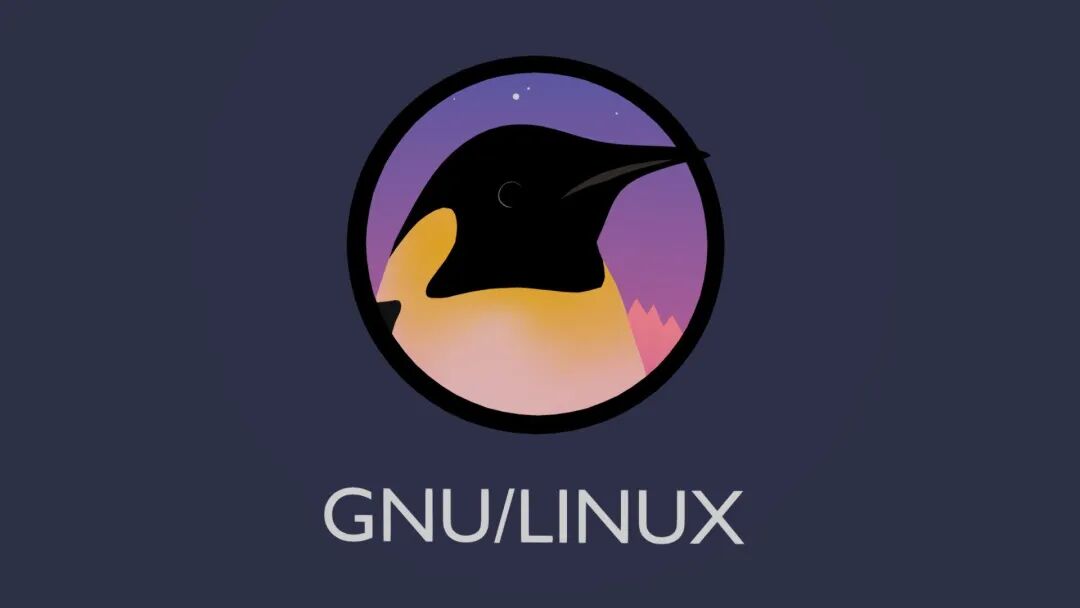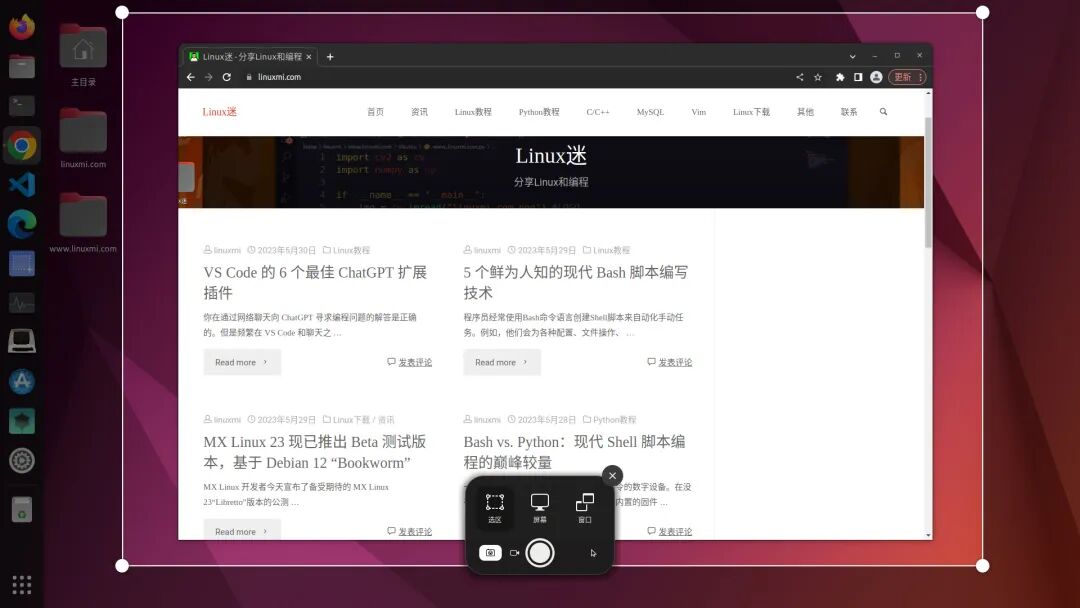Follow+Star Public Account Number, don’t miss out on exciting content

Source: | Internet
When you read some blog posts about Linux, you may come across an interesting term: GNU/Linux. What do these letters represent, and why are they always associated with Linux?This question is simple, but the answer has sparked a controversy that has existed in the Linux world for decades.What is GNU/Linux? GNU/Linux is a name for a free and open-source operating system, which we commonly refer to as “Linux”.When used to refer to a general operating system, the terms “GNU/Linux” and “Linux” can be used interchangeably. However, creating a fully functional operating system requires many different components. It can be said that in GNU/Linux, the GNU part is more significant than the Linux part, which is why naming this operating system is not as straightforward as it sounds.What is “GNU” in GNU/Linux?Let’s go back to the 1980s, a transformative period in the computer industry. A Supreme Court ruling involving Apple determined that binary programs (software that can be executed directly, as opposed to source code) could be protected by copyright. A few years later, Microsoft released the Windows operating system, changing the way people interacted with software.Before software began to be protected by copyright and aimed at commercial interests, most software was primarily used by researchers and academics. Computer code was openly shared, and people could freely use these programs. However, with the emergence of various restrictions, actions that were previously permissible became illegal.
GNU/Linux is a name for a free and open-source operating system, which we commonly refer to as “Linux”.When used to refer to a general operating system, the terms “GNU/Linux” and “Linux” can be used interchangeably. However, creating a fully functional operating system requires many different components. It can be said that in GNU/Linux, the GNU part is more significant than the Linux part, which is why naming this operating system is not as straightforward as it sounds.What is “GNU” in GNU/Linux?Let’s go back to the 1980s, a transformative period in the computer industry. A Supreme Court ruling involving Apple determined that binary programs (software that can be executed directly, as opposed to source code) could be protected by copyright. A few years later, Microsoft released the Windows operating system, changing the way people interacted with software.Before software began to be protected by copyright and aimed at commercial interests, most software was primarily used by researchers and academics. Computer code was openly shared, and people could freely use these programs. However, with the emergence of various restrictions, actions that were previously permissible became illegal. Thus, an organization called the Free Software Movement was formed. In 1983, Richard Stallman announced a plan to create a completely non-proprietary Unix-compatible operating system. He called it the GNU Project, and this announcement can still be found on GNU.org.GNU is a recursive acronym that stands for “GNU’s Not Unix.” The GNU Project provides many important tools that are now relied upon by free desktops. Key tools created in the 1980s include GCC (a tool for compiling C language), the powerful Emacs text editor, Bash, and various command-line utilities still in use today.The GNU Project also includes many widely used applications, such as GIMP (GNU Image Manipulation Program) and GNOME, which is one of the most popular free desktop environments. Regardless of which Linux operating system you use, you likely depend on many components of GNU software.The GNU Project is also responsible for formulating the General Public License (GPL). It is this license that has maintained the freedom of most of the free software we use over the years.What is “Linux” in GNU/Linux?
Thus, an organization called the Free Software Movement was formed. In 1983, Richard Stallman announced a plan to create a completely non-proprietary Unix-compatible operating system. He called it the GNU Project, and this announcement can still be found on GNU.org.GNU is a recursive acronym that stands for “GNU’s Not Unix.” The GNU Project provides many important tools that are now relied upon by free desktops. Key tools created in the 1980s include GCC (a tool for compiling C language), the powerful Emacs text editor, Bash, and various command-line utilities still in use today.The GNU Project also includes many widely used applications, such as GIMP (GNU Image Manipulation Program) and GNOME, which is one of the most popular free desktop environments. Regardless of which Linux operating system you use, you likely depend on many components of GNU software.The GNU Project is also responsible for formulating the General Public License (GPL). It is this license that has maintained the freedom of most of the free software we use over the years.What is “Linux” in GNU/Linux? Linux was born in 1991. The project began with a student at the University of Helsinki who started developing his own operating system kernel independently. His name is Linus Torvalds.At that time, the GNU Project had already created many components needed to build a complete free operating system, but some key parts were still missing. These parts included hardware drivers, daemons, and a working kernel. These components enable software to communicate with hardware.GNU Hurd, the kernel that the GNU Project attempted to develop, had already begun development but was not ready yet. Another kernel called MINIX had existed since 1987, but it was only licensed for educational purposes.After facing frustration, Torvalds decided to create a kernel himself. He named this personal project Linux, combining his name with UNIX, but he thought that was too arrogant to share publicly. So, he named the project Freax, a combination of “free,” “freak,” and “UNIX.” A colleague disliked this name and preferred Linux. Linus agreed, and the name was kept.Initially, this kernel was not free, but in 1992, Linus licensed Linux under the GPL (GNU General Public License), a mandatory copyright agreement created by the GNU Project. This decision played a significant role in the project’s success. Many people chose to adopt Linux and contribute to its development rather than create competing kernels.Are we using Linux or GNU?With GNU tools and a fully functional Linux kernel, we now have a working free operating system. But how should we refer to it? From the early days, many people simply referred to operating systems using the Linux kernel as “Linux.” This has led to some tension because Linux does not represent most of what we think of when we say Linux.To reiterate, the Linux kernel is the specific part that enables software and hardware to communicate. And what about everything we see on the screen? That is something else.The ideal GNOME desktop operating system was initially proposed by Richard Stallman to be called a GNU system based on Linux. He later changed his preference and proposed GNU/Linux (pronounced “GNU slash Linux” or “GNU plus Linux”) to clearly indicate that both projects played significant roles. Some accepted this view, while others found the name both awkward and unnecessary. This division continues to this day.Why say “GNU/Linux”?
Linux was born in 1991. The project began with a student at the University of Helsinki who started developing his own operating system kernel independently. His name is Linus Torvalds.At that time, the GNU Project had already created many components needed to build a complete free operating system, but some key parts were still missing. These parts included hardware drivers, daemons, and a working kernel. These components enable software to communicate with hardware.GNU Hurd, the kernel that the GNU Project attempted to develop, had already begun development but was not ready yet. Another kernel called MINIX had existed since 1987, but it was only licensed for educational purposes.After facing frustration, Torvalds decided to create a kernel himself. He named this personal project Linux, combining his name with UNIX, but he thought that was too arrogant to share publicly. So, he named the project Freax, a combination of “free,” “freak,” and “UNIX.” A colleague disliked this name and preferred Linux. Linus agreed, and the name was kept.Initially, this kernel was not free, but in 1992, Linus licensed Linux under the GPL (GNU General Public License), a mandatory copyright agreement created by the GNU Project. This decision played a significant role in the project’s success. Many people chose to adopt Linux and contribute to its development rather than create competing kernels.Are we using Linux or GNU?With GNU tools and a fully functional Linux kernel, we now have a working free operating system. But how should we refer to it? From the early days, many people simply referred to operating systems using the Linux kernel as “Linux.” This has led to some tension because Linux does not represent most of what we think of when we say Linux.To reiterate, the Linux kernel is the specific part that enables software and hardware to communicate. And what about everything we see on the screen? That is something else.The ideal GNOME desktop operating system was initially proposed by Richard Stallman to be called a GNU system based on Linux. He later changed his preference and proposed GNU/Linux (pronounced “GNU slash Linux” or “GNU plus Linux”) to clearly indicate that both projects played significant roles. Some accepted this view, while others found the name both awkward and unnecessary. This division continues to this day.Why say “GNU/Linux”? From the beginning, the purpose of the GNU Project was to develop a complete operating system. The kernel is just one missing piece of this puzzle. Torvalds’ goal was not to create an operating system but to provide that missing part.
From the beginning, the purpose of the GNU Project was to develop a complete operating system. The kernel is just one missing piece of this puzzle. Torvalds’ goal was not to create an operating system but to provide that missing part.
- Linux is crucial for anything you see on the screen, but it has little to do with what you actually see. This mainly depends on your desktop environment.
- GNU also handles many things in the background. Even if you don’t install a graphical user interface, you will still interact with some command-line tools from GNU (like Bash itself).
- Without GNU tools, what we think of as Linux would not be Linux. Although Android uses the Linux kernel, it does not function like Linux. This is mainly because it lacks the GNU toolchain.
- A screenshot of “Linux” looks no different from a screenshot of a free desktop operating system based on BSD. While the Linux kernel is invisible, various open-source BSD-based operating systems provide an experience almost identical to desktop Linux.
- This is not how we name other operating systems. When we think of Windows, we usually think of the interface, and few people immediately think of the Windows kernel. If someone could run the Windows interface and all Windows applications on the Linux kernel, they would likely still consider that Windows.
- Referring to the entire ecosystem as Linux can lead to confusion. Sometimes Torvalds is thought to be the creator of the entire operating system, even though he only created a specific part of it.
- GNU has taken on a significant responsibility for the culture and licenses of free desktops. The GNU Project not only provides the tools needed to build free operating systems but also offers a legal framework. The GPL prevents people from using free code to create competing proprietary software. Many core tools, including Linux itself, are released under a shared copyright license, accelerating their adoption and laying the foundation for the culture of the free software community today.
Reasons for Using “Linux”
There are strong reasons to believe that GNU/Linux is a more accurate and precise name. But is it a good name? Here are some arguments people make in favor of calling the operating system “Linux.” This list may be shorter but perhaps more compelling.
- Linux has become more popular. This was true in the 90s and remains so today. Referring to the operating system by another name would feel like a deliberate rebranding effort. This is because Linux enables people to run all the software created by the GNU Project and others. Without Linux, you wouldn’t be able to use anything.
- GNU/Linux is an awkward name. It reads awkwardly and sounds even more awkward. Just this reason alone is enough for some people to think that Linux is a fair name, so they are reluctant to refer to the operating system by any other name.
- When do we stop? If we give recognition to GNU, shouldn’t we also give recognition to X or Wayland? They are the display servers that most free desktop ecosystems rely on. Audio is also important. Desktop environments are important. Soon we will be calling our desktop GNOME/PipeWire/Wayland/GNU/Linux.
Linus himself once argued that calling Linux GNU/Linux is absurd.
Do you prefer GNU/Linux or Linux? I am not a fan of GNU/Linux, but saying a laptop runs GNU rather than Linux is indeed clearer. With the rise of Android and Chromebooks, using the name Linux has become increasingly insufficient. A program available on Linux does not mean it can run on Android, and vice versa.As infotainment systems, smart home products, wearables, and other electronics continue to adopt the Linux kernel, the situation becomes even more complex.Disclaimer:This article is sourced from the internet, and the copyright belongs to the original author. If there are any copyright issues, please contact me for removal.
———— END ————

● Column “Embedded Tools”
● Column “Embedded Development”
● Column “Keil Tutorials”
● Selected Tutorials from the Embedded Column
Follow the public accountReply “Join Group” to join the technical exchange group according to the rules, reply “1024” to see more content.
Click “Read the original text” to see more shares.